GDP, Money and the World Cup
By Gilbert Mercier and Dady Chery
No. It’s not only a game. The World Cup is about money. Lots of it. Quite apart from the $15 billion that Brazil spent “pacifying” the favelas and building stadiums in preparation for the World Cup, or the $4.5 billion of profit that FIFA will make from this sports extravaganza, there is the money spent and won in betting. One can bet on nearly every statistic in the World Cup, including the top goal scorers and goal-scoring teams, the total number of goals that each will score in the competition, the stage of elimination for each participating country, the number of yellow or red cards to be given out, and even the total number of corner kicks that will happen. Not being professional bettors or football players, we shall limit ourselves to our own simple prediction of the team’s rankings, quite different from the one formulated by FIFA, while considering some of the directions in which money has kicked the ball.
Money for nothing
The football punditry has turned out to be drastically wrong about almost everything. According to them, European nations should have performed poorly, based on previous World Cup competitions in South America, with Spain, the current world and European champion, being an exception. But Spain was humiliated in one of the first games by a crushing 5-1 defeat from the Netherlands. Brazil too was a favorite, and anyway, this was supposed to be Latin America’s party. A good showing from the national team would have possibly ensured Dilma Rousseff’s reelection and allowed her to claim that the billions spent on infrastructure were worthwhile, at least in terms of pure national-pride capital. But a disastrous 7-1 loss to Germany by the Brazilian team in the semi-final, despite copious prayers from team and fans, has guaranteed that Rousseff will get little return on her investment. Well before Brazil’s monumental beating by Germany, the 200,000 Brazilians kicked out of their homes, the poor, and basic morality had already lost.
GDP is money
Based on our own simple analysis of the World Cup competition, one criterion stands out as a quite reliable predictor of the probability of a win for any country: its gross domestic product (GDP). In other words, given two teams in the World Cup competition, in almost every case one could predict the winner quite simply by its GDP compared to that of its opponent. Thus Germany’s wins over France and Brazil were entirely predictable. The United States does not follow the pattern, but it is not yet really a football nation. As expected, African teams as well as European teams from countries such as Spain and Italy, which have fallen economically on hard times, performed poorly in the World Cup. So the next time you hear the pundits talk about the marvelous footwork of Neymar, Messi, and Suarez, tell them: “It’s the economy, stupid.”
Money stays in the family
In the registry of money — i.e. dirty money — on Monday July 7, 2014 Brazilian police arrested Ray Whelan, Director of Match Hospitality, an exclusive subcontractor of FIFA. Since 2002, Match Hospitality, under contract with FIFA, has organized VIP bookings for the World Cup, including air fares, accommodations, and of course, complimentary tickets to the games. This organization stands accused of reselling over 1,000 tickets per match at €1,000 each, which it got from FIFA for free. Match Hospitality, which has on its board Philippe Blatter, nephew of FIFA President Joseph (Sepp) Blatter, has already been granted an exclusivity from FIFA for World Cups 2018 in Russia and 2022 in Qatar. Sepp Blatter and other FIFA officials are under investigation for allegations of receiving bribes to secure Qatar its 2022 World Cup. There is so much that can bought in the World Cup, including referee decisions, the composition of the groups for the qualifying matches, the schedules for the teams, the quality of the venues for the matches, and even the level of comfort for the players during their travel to the host country and their stay there. In the unequal world of football, it goes without saying that the richest federations get the best money can buy.
Plane loads of money
The money for each team’s participation in the World Cup is in the range of millions of dollars. For the European teams, this was paid largely by industry sponsors. In the case of Ghana, the players insisted, before the game against Portugal, on receiving $3 million in cash. The money was delivered, after the intervention of the Ghanean President and phone conversion with the players, as a plane load of small and large bills, flown directly from Ghana to Brazil. In the case of Cameroon, the shake down for cash happened before the players left home. Unsurprisingly, allegations of match fixing have emerged against both of these African teams. The British newspaper The Daily Telegraph has accused Ghana’s Football Federation of being involved in fixing of friendly matches. In the case of Cameroon, credible allegations have surface in the German magazine Der Spiegel that convicted match fixer Wilson Raj Perumal predicted, not only that Cameroon would lose to Croatia 4-0 but also that a Cameroon player would be sent off with a red card. On the team’s return from Brazil, its coach and seven players were immediately put under investigation on suspicion of taking bribes.
Mining the diaspora for goals
The African team that reached the farthest in the competition was France, which had loaded its team with diaspora Africans from its former colonies. Similarly Germany’s teams included two diaspora Turks and one Ghanaean. Regardless of their countries or origin, the world’s best football players wind up in Europe playing for the richest clubs. Unlike Europe, Africa and Latin America do not have the luxury of this exercise in neocolonialism that sometimes passes for success in racial integration. On the sidelines of the World Cup, there are bidding wars for upcoming talents. For example, the Brazilian defender David Luiz was bought by Paris Saint Germain (PSG) in a five-year $85 million deal, a peak value in June that would surely have plummeted after the disastrous loss against Germany, and the French player Paul Pogba was put on Real de Madrid’s shortlist. One often hears of a brain drain, but if anything illustrates a body drain, it is World Cup football.
Scoring at the bank
For those who do not want to give way to cynicism and prefer to hope for a win by the underdog, the best bet is the Netherlands (no. 17 in GDP), which could be considered an outlier in our GDP model of Word Cup forecast, having beaten Spain, which ranks slightly higher in GDP (no. 13), and having never won a World Cup. Be warned, however, that our model predicts that Argentina (no. 29 in GDP) will be beaten by the Netherlands and, following the same rationale, the Netherlands, in turn, will lose to Germany (no. 4 in GDP).
Interview on Progressive Radio Network’s (PRN) Leid Stories.
Listen to the following podcast for an interview of Gilbert Mercier with Utrice Leid about “The World Cup: What The Mega Event Proved Beyond A Shadow of Doubt” (starting at 25 min).
Editor’s Notes: Photographs one, two, three, five and eight by Ben Tavener; six and seven by Ninja Midia; four by Jonbai.
Related Articles


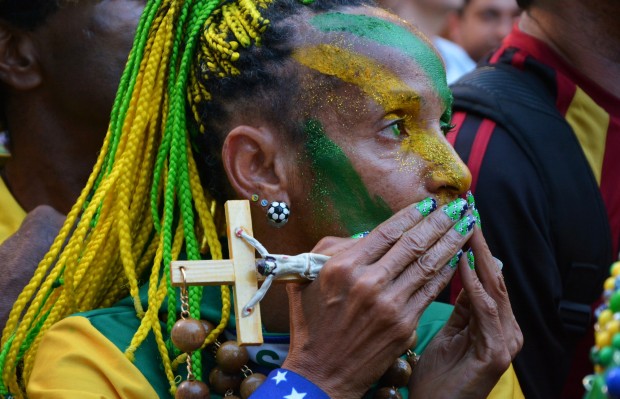
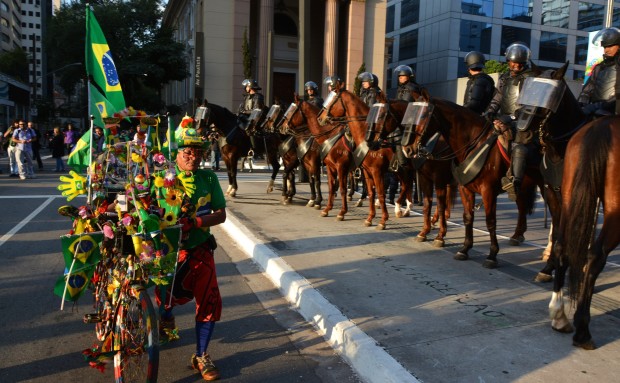
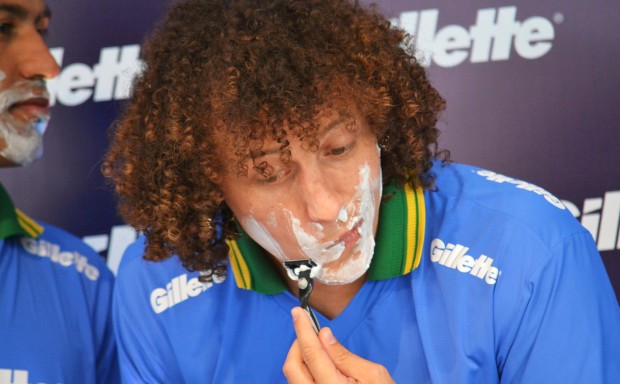
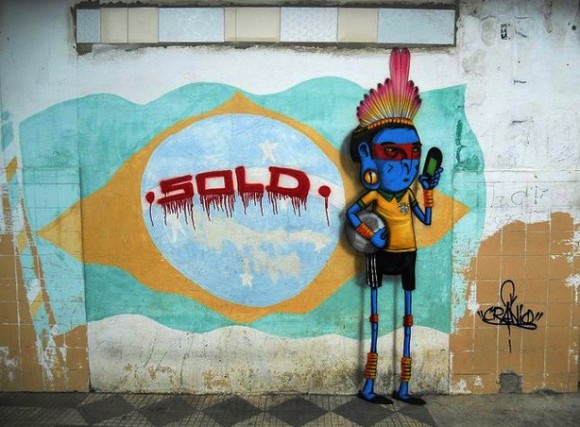
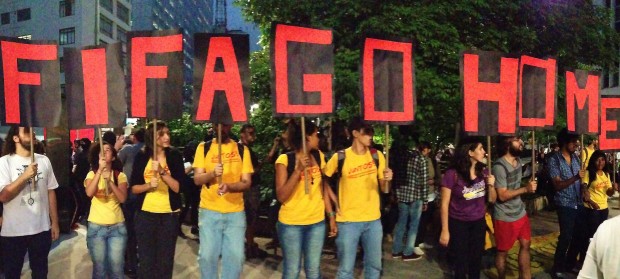
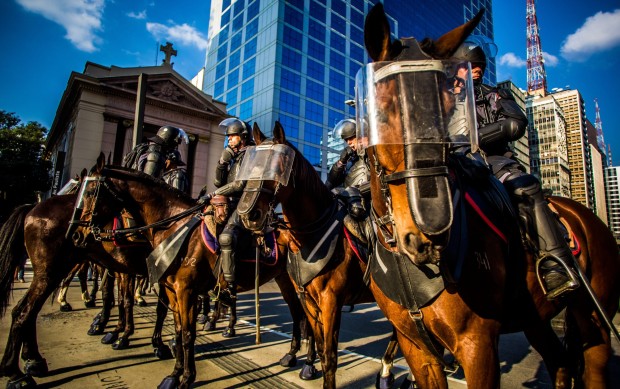
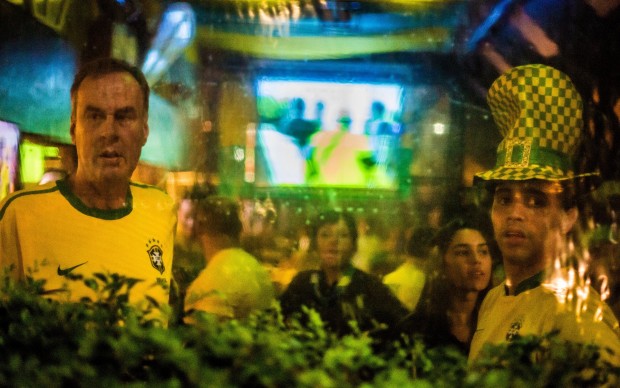
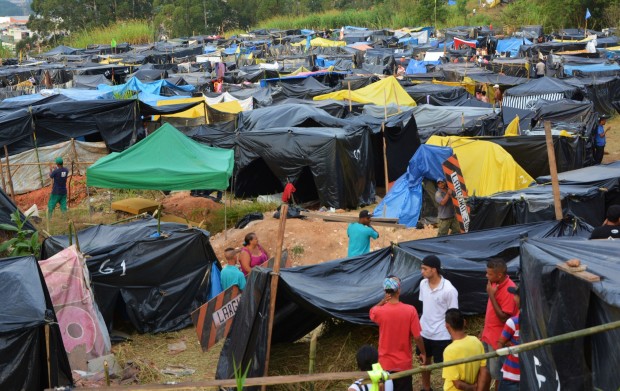
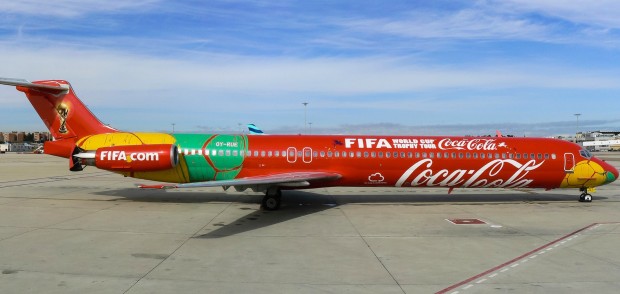











You must be logged in to post a comment Login